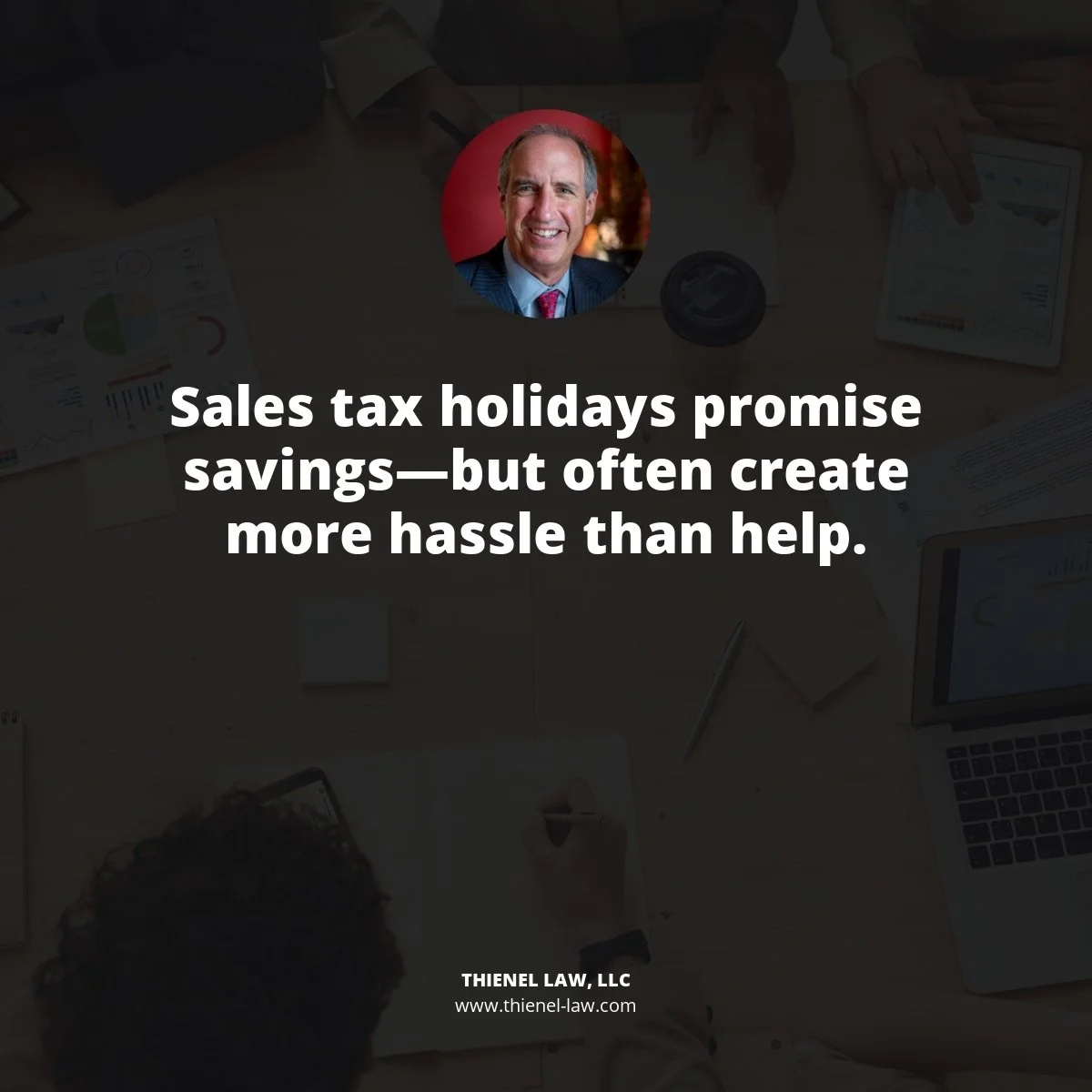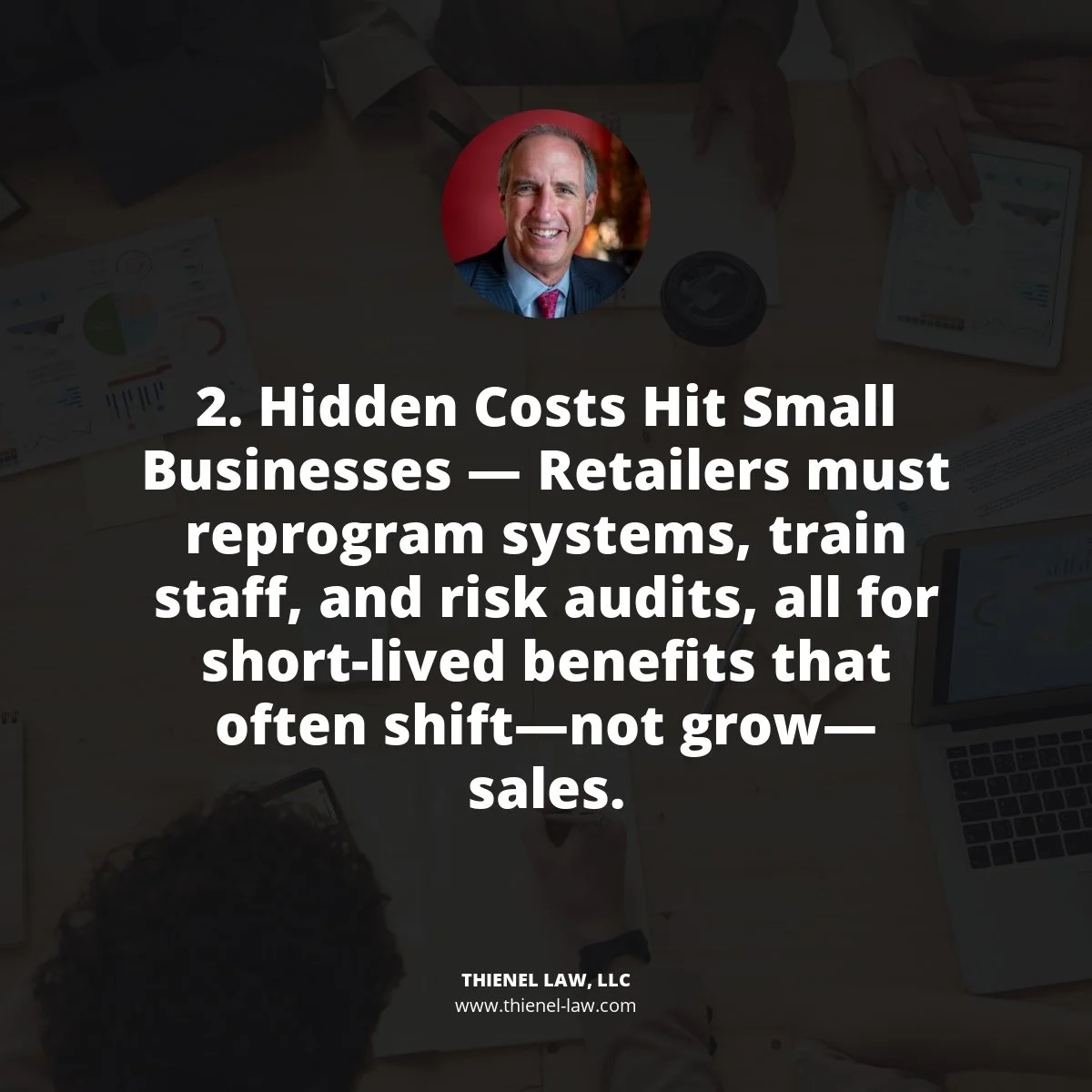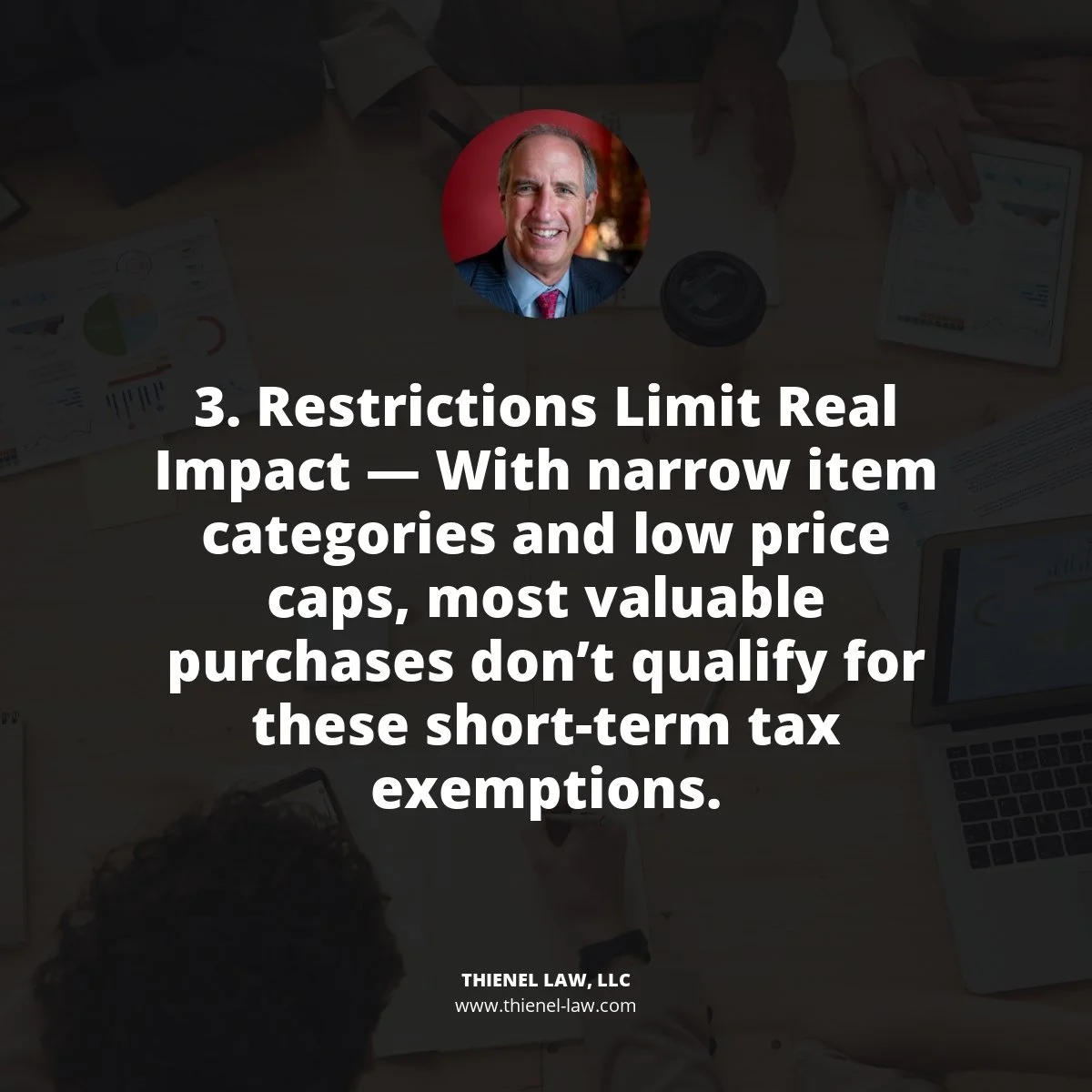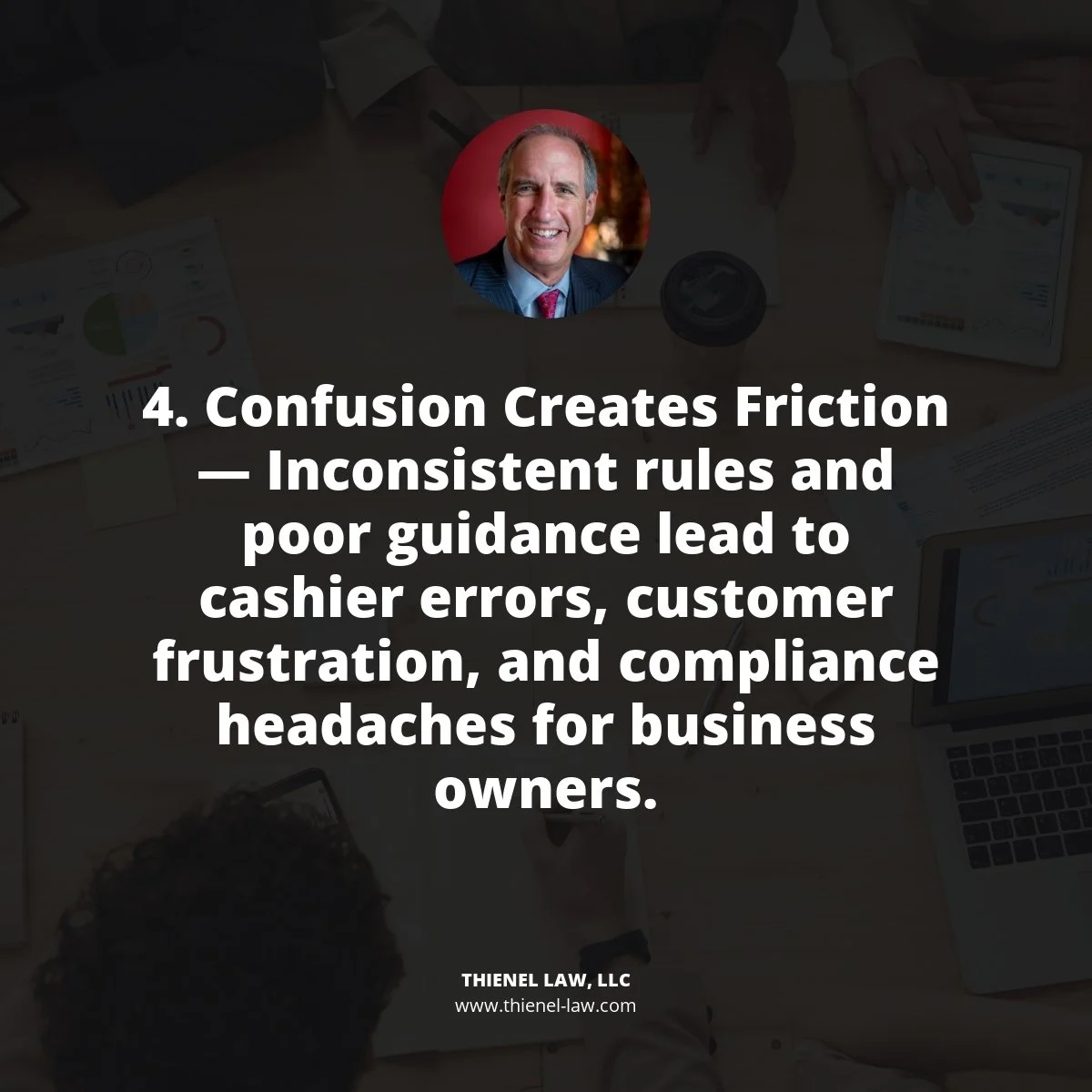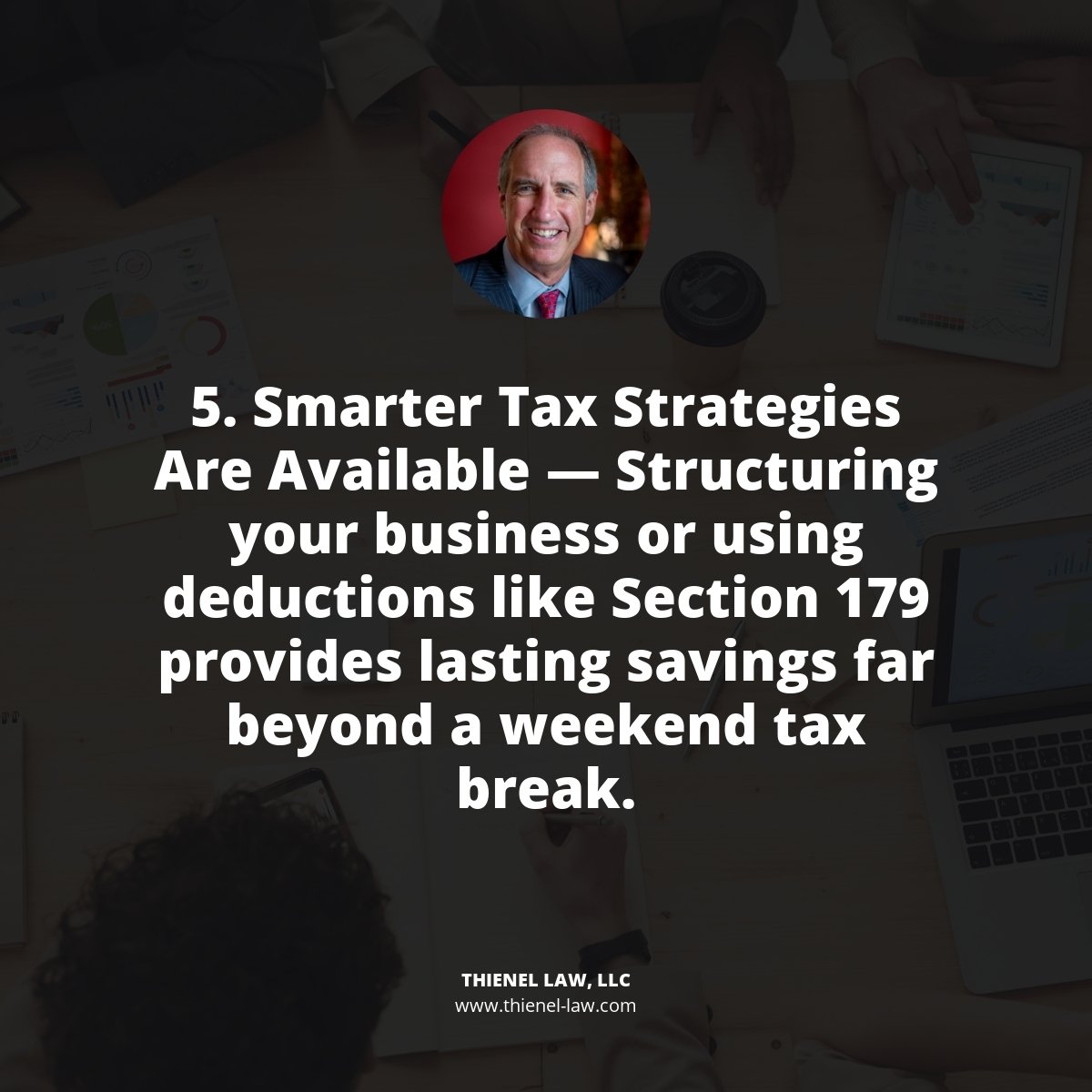Sales Tax Holidays: Good Intentions, Bad Policy
Key Takeaways
Sales tax holidays are temporary exemptions on state sales tax for specific items, often back-to-school supplies or weather-related products.
Despite good intentions, these holidays create confusion and offer limited economic benefit.
Businesses bear a disproportionate compliance burden during sales tax holidays, especially smaller retailers.
The intended savings for consumers often fail to materialize due to inflated prices or limited stock.
Business owners and high-net-worth individuals in the DMV region should not rely on tax holidays as a meaningful tax planning tool.
What Sales Tax Holidays Really Mean for Businesses and Taxpayers in the DMV
Every year, states like Maryland and Virginia roll out sales tax holidays, allowing consumers to buy certain items without paying state sales tax. These holidays are pitched as helping families save money—often aligned with back-to-school shopping or emergency-prep purchases.
But as well-intentioned as they are, sales tax holidays have remained essentially unchanged since their inception. And they remain what they've always been: largely ineffective and inefficient.
If you're a business owner, high-income professional, or investor operating in Maryland, D.C., or Virginia, it's worth understanding why these tax holidays might not be the cost-saving opportunity they seem—and why they can actually create more complications than benefits. An experienced Maryland business tax lawyer can help.
What is a Sales Tax Holiday?
A sales tax holiday is a brief window of time—usually a weekend—when state sales tax is not collected on specific categories of purchases. In Maryland, this typically takes place in August and applies to qualifying clothing and footwear priced under $100. Virginia's version covers school supplies, energy-efficient goods, and hurricane preparedness items.
The idea is simple: give consumers a break and stimulate local economies. But when we look closely at how these holidays function in practice, the flaws quickly become apparent.
1. The Economic Benefit Is Largely Illusory
For consumers, the headline sounds great: pay no state sales tax for a weekend. But the real-world benefit is minimal.
A typical state sales tax rate ranges between 5% and 7%. On a $90 pair of shoes, a tax holiday saves the consumer about $5. That might be welcome, but it's unlikely to change a household's financial picture in any meaningful way.
More importantly, studies have shown that these tax holidays don't increase overall economic activity. Instead, they simply shift the timing of purchases. Consumers delay buying school supplies or clothing until the tax-free weekend, which distorts normal spending patterns but doesn't increase the volume of full-year sales.
For businesses, especially small retailers, this can cause supply chain disruptions and increased staffing needs with no significant long-term profit gain.
Example: A local clothing boutique in Alexandria may see a short-term spike in foot traffic during Virginia's tax holiday. But those same customers may have simply delayed their shopping trip from July to August. The net gain? Virtually zero.
2. Compliance Costs Are Real—and They Fall on Businesses
One of the less discussed downsides of sales tax holidays is the added administrative burden placed on business owners.
Retailers must program point-of-sale systems to exempt qualifying items during the tax holiday window. Store staff must be trained to recognize which items qualify and which don't—often with unclear or inconsistent guidance from state tax agencies.
Mistakes can lead to penalties, audits, or customer complaints. For small businesses without a dedicated tax compliance department, this becomes a time-consuming headache.
Example: A family-owned school supply store in Rockville may need to adjust their system to remove tax on specific notebooks and backpacks during Maryland's tax-free week. But if a cashier forgets to exempt a qualifying item or misapplies the rule, the business could come under scrutiny from the Comptroller's Office.
At scale, this compliance burden acts as a hidden tax—costing time, money, and personnel.
3. Limited Product Scope Reduces the Utility
Tax holidays are typically limited to narrow categories with price caps. This restricts the usefulness of these holidays both to consumers and business owners.
In Maryland's case, only clothing and footwear under $100 qualifies, plus the first $40 of backpacks. In Virginia, only certain school supplies are included, subject to price thresholds. This excludes other high-price items that families or businesses might actually need.
For high-net-worth individuals purchasing larger quantities or higher-end items, the holiday's restrictions mean little or no savings.
Example: A consulting firm in D.C. looking to supply new laptops to its team won't benefit from a tax holiday unless the items fall under very specific exemptions—which they almost never do.
Business owners furnishing offices, upgrading IT infrastructure, or purchasing capital equipment will find no relief here.
4. Confusion Undermines Effectiveness
From a policy standpoint, one of the biggest failures of sales tax holidays lies in how poorly understood they are. Both consumers and retailers routinely misunderstand which items qualify.
This confusion often stems from:
Variable state rules (a tax-exempt item in Virginia may not be exempt in Maryland)
Ambiguous guidance (is a belt considered clothing or an accessory?)
Price caps that lead to disputes at the register
The result is strained customer interactions, inconsistent application of tax rules, and potentially costly errors for businesses.
Example: A parent in Bethesda tries to buy her child athletic cleats during Maryland's tax-free week. But because cleats are considered "specialty footwear," they're not exempt. Now the store must explain the exclusion, the parent is frustrated, and the experience becomes less about savings and more about miscommunication.
5. Better Tax Planning Tools Already Exist
For individuals and businesses aiming to reduce tax impact, sales tax holidays should not be considered a serious strategy.
There are far more effective tools available:
LLCs and S-Corps in the DMV region can deduct qualified business purchases year-round
Estate planning tools—like trusts and gifting strategies—provide long-term tax advantages
High-income earners can offset tax exposure through retirement contributions, charitable giving, and investment structuring
By contrast, saving a few dollars during one weekend each year offers no strategic value.
Example: An entrepreneur in Fairfax planning for year-end equipment purchases will achieve far greater tax savings by structuring those purchases as Section 179 deductions—rather than banking on one weekend's sales tax break.
At Thienel Law, we help clients structure their entities and investments in a way that provides real, sustainable tax advantages—not temporary gimmicks.
Practical Impact for DMV Businesses and Professionals
If you operate in Maryland, Virginia, or Washington, D.C., here's what you need to know:
Don't rely on sales tax holidays for meaningful tax reduction
Use caution when marketing tax-free weekends to your customers—double-check qualifying items
Consider the time and labor needed to comply with short-term changes to your tax collection process
Build your tax and business strategy around long-term tools like entity structuring, trusts, and asset protection—not seasonal promotions
For example, if you're a physician running a private practice in Montgomery County, your focus should be on how your business is structured, how profits are taxed, and how distributions are managed. A sales tax exemption on paper products for one weekend won't move the needle.
Effective Tax Planning Requires Better Tools
Sales tax holidays are a political crowd-pleaser. They make for good headlines and give the impression of consumer relief. But when you examine how they work—and who really benefits—it's clear that these seasonal events offer little in the way of real economic or tax advantage.
At best, they're a temporary blip. At worst, they increase complexity for businesses and do nothing to help long-term growth.
Whether you're running a growing LLC in Northern Virginia, managing a professional services firm in D.C., or looking to protect your estate in Maryland, the path to tax efficiency lies in smart, forward-looking strategies. Not annual gimmicks.
If you're unsure how this applies to your business or personal situation, we're here to help. Schedule a consultation with Steve Thienel to get advice tailored to your goals.

